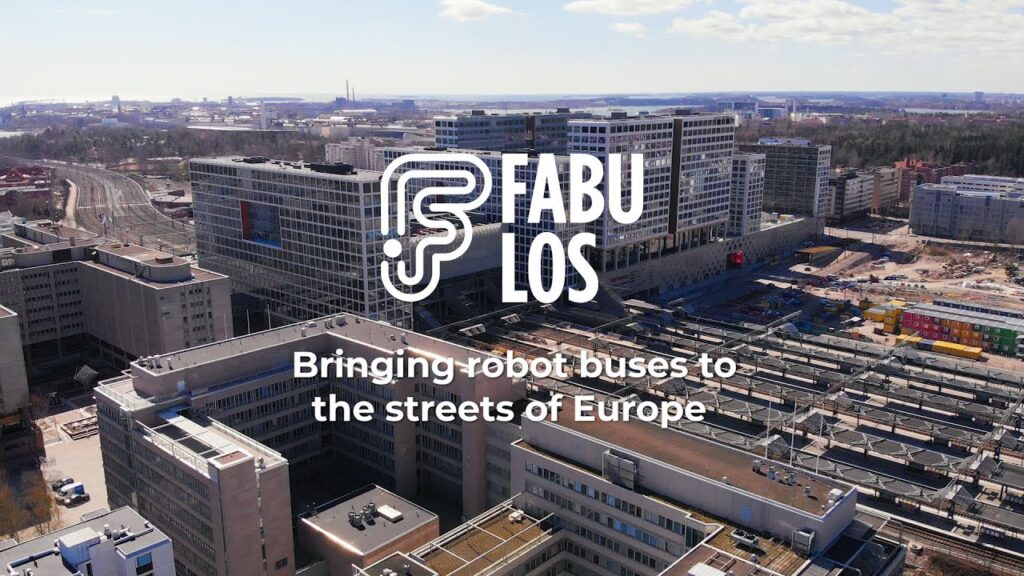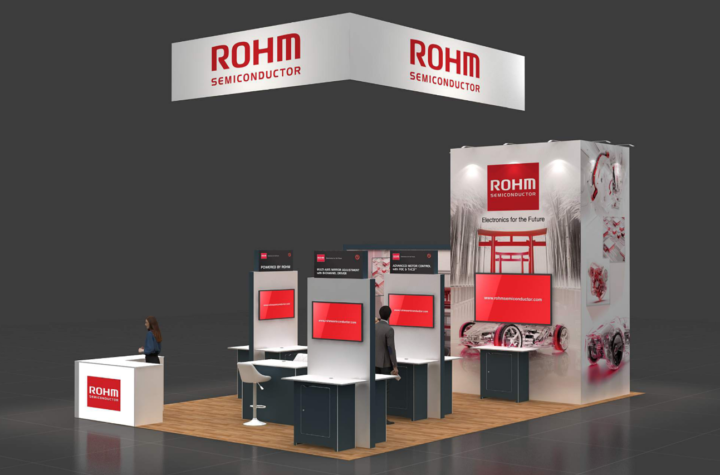
Within the FABULOS project, three different robot bus solutions have been successfully tested in Finland, Norway, Estonia, Greece and the Netherlands. The aim of the EU-funded FABULOS project was to procure systems for the operation of automated last-mile transport and demonstrate the scalability of these solutions. Based on the results, proof-of-concepts for the management of autonomous fleets as part of the regular public transportation system have now been delivered.
During the final field-testing phase of the FABULOS Pre-Commercial Procurement (PCP), the selected robot bus prototypes were tested as small fleets of shuttles between April 2020 and March 2021. Each of the three suppliers chosen for this phase received up to one million euros to prepare pilots and validate their prototypes. The three supplier consortia, each composed of several companies representing six countries in total, were Sensible4-Shotl (Finnish–Spanish), Saga (Norwegian–Canadian–Dutch) and Mobile Civitatem (Estonian).
Six successful robot bus pilots in five European cities
Despite the COVID-19 restrictions, all six pilots were carried out according to plan: two field tests per supplier consortium. A total of 2,807 passengers were carried onboard the robot buses and approximately 14,000 kilometres were driven in open road conditions in Finland, Estonia, Norway, the Netherlands and Greece. After each pilot, a pre-set list of nine functional requirements as well as societal, legal and technical maturity of the autonomous fleets were assessed by a seven-member evaluation team consisting of the procuring partners and the FABULOS project’s technical partner, Metropolia University of Applied Sciences.
The FABULOS project has received a great deal of attention in the international media due to its innovative procurement approach and the ambitious goal of testing remotely controlled fleets of robot buses in real-life conditions in mixed traffic and with residents as passengers. Furthermore, the virtual FABULOS Final Conference in February 2021 attracted participants from all over the world, together with the high-level keynote speakers the participants totalled over 300, including Transport and Communications Minister of Finland Timo Harakka.
“Based on our vision, automated transportation is safer, more efficient and more sustainable than the current state of transport. However, the development we hope to see in Finland will not become a reality without a clear common goal and joint effort. Therefore, may the FABULOS project be a springboard for the next steps towards a large-scale mobility service provided by autonomous vehicles!” stated Minister Harakka in his keynote speech.
Main lessons learnt for the future robot bus pilots
Before the FABULOS solutions can be fully commercialised and implemented into the public transport systems, several legislative aspects and technical features need to be improved. Solid political support and inclusion of all relevant stakeholders from the planning phase onwards was key to the success of the FABULOS project. Therefore, for future robot bus initiatives and pilots, open and comprehensive dialogue with policy makers, technology providers, public transport operators and regulatory bodies is highly recommended.
The procuring partners attach high value to the impact of FABULOS on local ecosystems and knowledge building. Due to the testing of these innovative transport solutions, the capacity of all stakeholders for understanding the specifics of autonomous vehicles, their systems and implications has dramatically increased during the FABULOS project.
In Europe, more harmonised regulation is needed to facilitate implementation of robot bus pilots and the eventual integration of automated transportation in cities. In Estonia, Finland, the Netherlands and Norway, a regulatory framework facilitating automated transport is already in place, but its conditions and procedures vary widely. In Greece and Portugal, the project was a starting point to launch or refine such legislative processes. Ultimately, all vehicles within the FABULOS project proved to be able to succeed in the relevant national exemption and permission procedures, with the exception of Portugal.
Technical advancements beyond the state of the art
In the FABULOS project, the target for the technology advancement was set beyond the current state of the art, in compliance with the nature of the pre-commercial procurement framework. Consequently, expectations regarding the technological maturity of the solutions were high from the start. Despite the efforts of all three supplier consortia, it became clear that some of the most challenging technical requirements could not be met in mixed-traffic conditions, such as fully autonomous overtaking manoeuvres. Nevertheless, the field tests showcased technology maturity levels high enough to make integration with public transportation systems feasible in the near future.
The solutions went beyond state of the art in several ways: the speeds of the pilot vehicles reached 30 km/h, with passengers on board and with steep hills (Gjesdal) and in a busy urban environment (Helsinki). The capability to manage a fleet of autonomous vehicles in busy urban mixed traffic conditions was proven in the FABULOS project, as were the operations of a Remote Control Centre at all pilot sites, monitoring the fleets. Furthermore, improvements in localisation technology of the robot buses allowed operations on routes that previously required additional landmarks or were considered completely unfeasible. Furthermore, the retrofitting of autonomous driving software in various ‘regular’ vehicles was validated and improved.
The FABULOS project brought a significant increase in the technical robustness and reliability of the pilot vehicles and overall solutions. Nevertheless, the forthcoming commercialisation and wider roll-out of automated transport is dependent on further technological advancement in these areas mentioned above, as well as wider user-acceptance.
FABULOS Phase X is launched
The overall aim of the FABULOS pre-commercial procurement was to accelerate the introduction of new types of automated last-mile solutions entering the market. Now that the FABULOS project has ended, the procuring cities, other European cities and public transport operators are taking the next steps within the field of autonomous public transportation, building on the lessons learnt in the project. Since a pre-commercial procurement does not include commercialisation, the future developments in the field of robot buses by the FABULOS partners are part of the next step: FABULOS Phase X.
In relation to Phase X, concrete plans for follow-up projects have been confirmed in the cities of Helmond, Lamia and Helsinki. The FABULOS pilot of summer 2020 in the Ülemiste business district in Tallinn is currently being continued by AuVe Tech during the spring and summer of 2021, extended with on-demand functionalities. In Helmond, the city, province and their partners are working towards a permanent last-mile solution on the FABULOS route and integration in the new neighbourhoods.





More Stories
Baja SAE Carolina:
ROHM to Showcase Advanced Power Electronics at APEC 2025
ROHM Launches 650V GaN HEMT in a Compact, High-heat Dissipation TO-Leadless Package